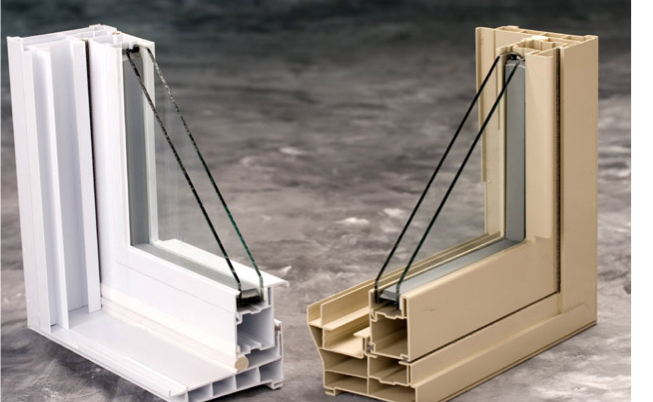Best Energy-Efficient Windows in Philadelphia, PA
Ready to elevate your home with new windows? Get the best energy efficiency with vinyl or fiberglass replacement windows crafted by our expert team at Zen Windows. Built to suit all four of Philadelphia’s seasons, our windows come with a variety of frame and glass options for peak performance.
Trust Zen Windows for a seamless buying experience. With one conversation, we’ll provide you with a quick, complimentary quote and a hassle-free sales approach. Let us make upgrading your windows as effortless as possible.
Philadelphia’s Home for Energy Efficient Windows
Ready to elevate your home with new windows? Get the best energy efficiency with vinyl or fiberglass replacement windows crafted by our expert team at Zen Windows. Built to suit all four of Philadelphia’s seasons, our windows come with a variety of frame and glass options for peak performance.
Trust Zen Windows for a seamless buying experience. With one conversation, we’ll provide you with a quick, complimentary quote and a hassle-free sales approach. Let us make upgrading your windows as effortless as possible.
If you’re contemplating window replacement for your home, you likely have many questions swirling in your mind. Energy efficiency is often at the forefront of these considerations, given its pivotal role in enhancing the home’s overall comfort and power usage.
While modernization and renovations may also drive the decision to invest in new windows, the underlying aim remains consistent: To secure windows that offer optimal energy efficiency.
When evaluating the energy performance of your windows, you can trust the expertise of Zen Windows. We’re dedicated to providing comprehensive answers to all your queries and guiding you towards windows that boast top-tier ratings, all while aligning with your budgetary goals.
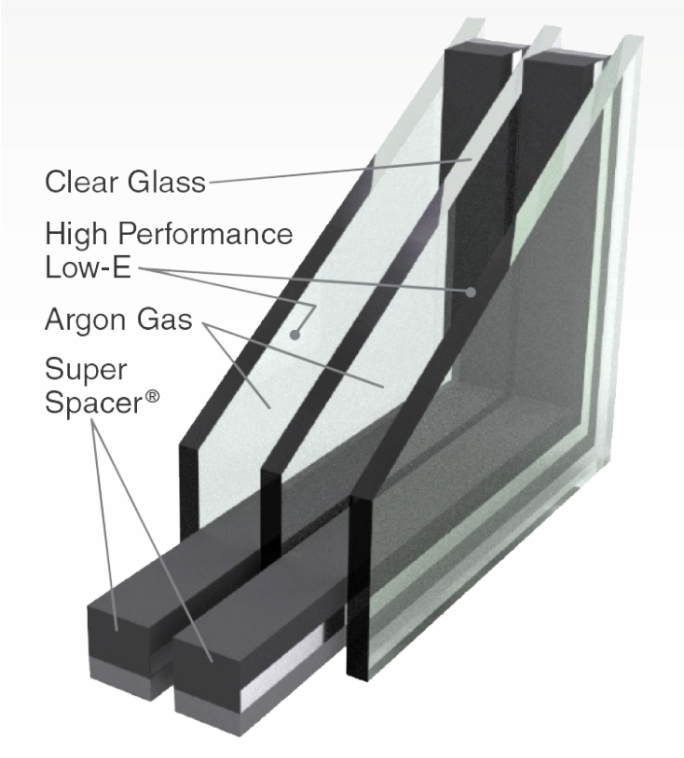
How Are Windows Energy Efficient?
While new windows alone won’t insulate your home, they play a crucial role in enhancing your energy efficiency. Modern window designs feature insulated frames and double or triple-pane glass, effectively curbing air leakage. This insulation and multiple pane setup create a protective barrier, thwarting unwanted heat exchange.
Investing in insulated, energy-efficient windows can yield substantial savings on your energy bills. Beyond financial benefits, choosing Zen Windows for installation offers added advantages, including enhanced natural lighting, improved visibility and clarity, and reduced noise levels.
For further details on installing energy-efficient windows tailored to your home, call your Philadelphia Zen Windows team today at (215) 987-3334 or contact us online today.
Will Energy-Efficient Windows Make My House Warmer?
Windows and doors are the two most common places where air escapes from the home, which makes them crucial for energy efficient construction. Heat transfer through these openings can significantly impact energy costs, regardless of whether it’s hot or cold air escaping. Energy-efficient windows effectively contain the heated or cooled air within your home, ensuring consistent indoor temperatures throughout the seasons.
If you’re seeking to control rising energy expenses while enhancing your home’s looks, trust the team at Zen Windows for energy-efficient window replacements. Double and triple-pane windows are particularly effective in reducing air transfer, while the inclusion of argon gas between glass panes provides an additional layer of insulation to prevent condensation. Low-E coating can also help regulate your home’s temperature by reflecting heat back indoors.
Contact Zen Windows for more information about installing energy-efficient windows for your home.

Energy-Efficient FAQ
What Are Insulated Glass Units?
Insulated glass units, also referred to as IGUs, consist of two or three window glass panes housed within a single frame. These panes are separated by an inert gas, typically argon, krypton, or a combination of both. These gasses are clear, odorless, and non-toxic, offering superior insulation properties compared to regular air alone. Spacers are utilized to maintain the separation between the glass panes, allowing for thermal expansion while maximizing thermal efficiency.
Which Window Material Is the Most Energy-Efficient: Aluminum, Vinyl, or Wood?
Among all the options, aluminum windows typically rank as the least energy-efficient choice. While wood offers excellent energy efficiency, it tends to degrade faster over time and demands more maintenance. Alternatively, composite and fiberglass frames provide durability comparable to wood without its maintenance requirements.
Vinyl windows are often a popular choice due to their affordability, durability, and minimal maintenance needs. Key advantages of vinyl replacement windows include:
- Architectural design versatility
- Enhanced return on investment over time
- Easy maintenance
- Lower installation costs
- Wide array of available styles
- Affordability compared to other materials
What Does “Low-E” Mean?
Low-emissivity coatings are usually applied to windows during manufacturing. The invisible layer on windows provides insulation and controls heat transfer. Windows with low-E coatings may cost 10%-15% more, but they reduce your energy loss by 30%-50%. This makes them a good investment.
Which Window Styles Are Considered the Most Energy-Efficient?
There are many different opinions among professionals about the most energy-efficient window styles. Some say picture windows are best because of their single pane of glass, minimizing potential air leaks. Conversely, others argue for bay, bow, or casement windows for their unique features and energy-saving potential. Before you settle on any windows, talk to your Philadelphia Zen Windows team to determine which ones might be best for you.
Why are U-Values Significant?
U-values serve as an important metric for assessing energy efficiency. They gauge the rate of heat transfer into and out of your home. A lower U-value indicates minimal heat loss, translating to improved energy efficiency. Triple-pane windows, known for their superior insulation properties, typically boast remarkably low U-values due to their heightened resistance to heat loss.
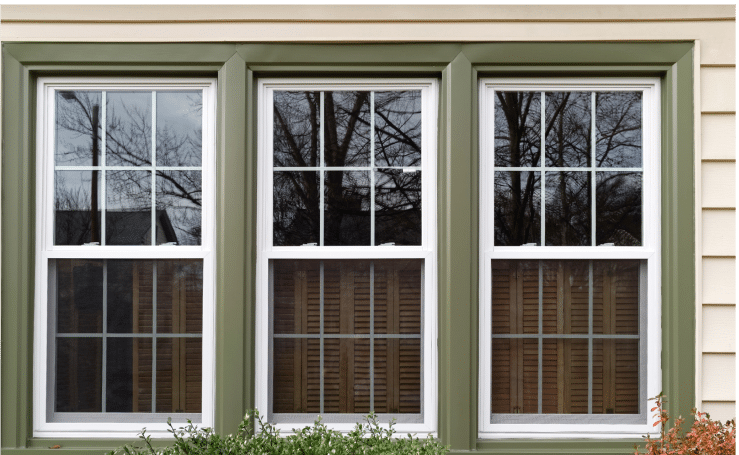
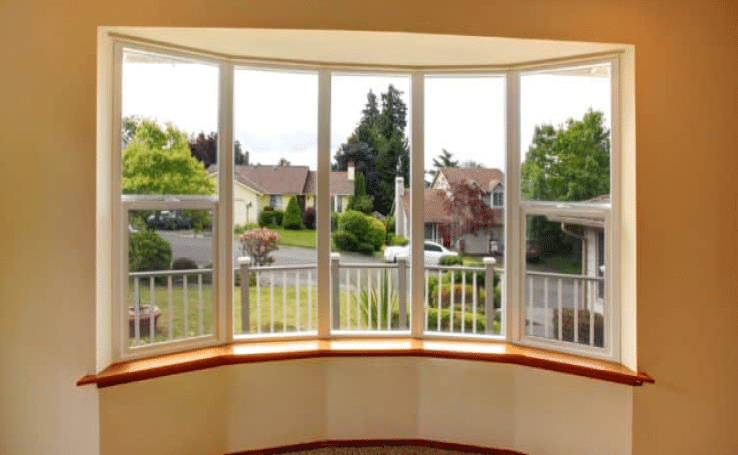
What U-Value is Best for Energy-Efficient Windows?
For the best energy efficiency, look for a window with a U-value ranging between 0.20 and 1.20.
As you shop for windows consider factors like the window’s size, shape, frame material, and the number of glass panes it incorporates. These elements collectively influence insulation and energy efficiency. Windows with a good U-value and enhanced insulation properties better regulate indoor temperatures.
Furthermore, incorporating features such as Low-E coatings and gas fills between glass panes can further enhance energy efficiency by minimizing heat transfer. Keeping these metrics in mind while shopping for replacement windows empowers you to select products that reduce energy consumption, limit heat gain, and maintain a comfortable indoor environment – all working to reduce your energy costs.
Are Energy-Efficient Replacement Windows a Smart Investment?
While replacing your home’s windows can entail a significant expense, it can yield substantial benefits. If your current windows are old or damaged, and you’re grappling with high energy bills, it’s time to consider a window replacement project.
The cost of high-performing, energy-efficient windows varies depending on features and materials. However, investing in windows from Zen Windows ensures longevity, minimal maintenance requirements, and noticeable reductions in energy costs over time. Choosing a quality product can enhance your home’s comfort and deliver long-term energy-saving benefits.
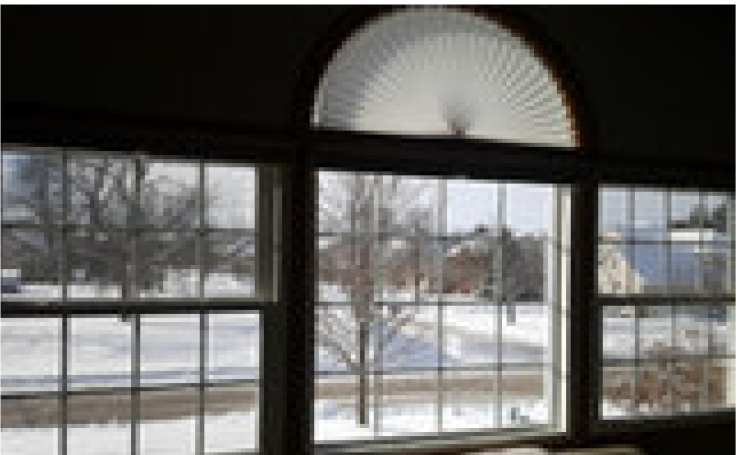

Call your Philadelphia Zen Windows team today at (215) 987-3334 or contact us online to get started now. Experience a pressure-free consultation and discover the best energy-efficient replacement windows for your home with Zen Windows.
